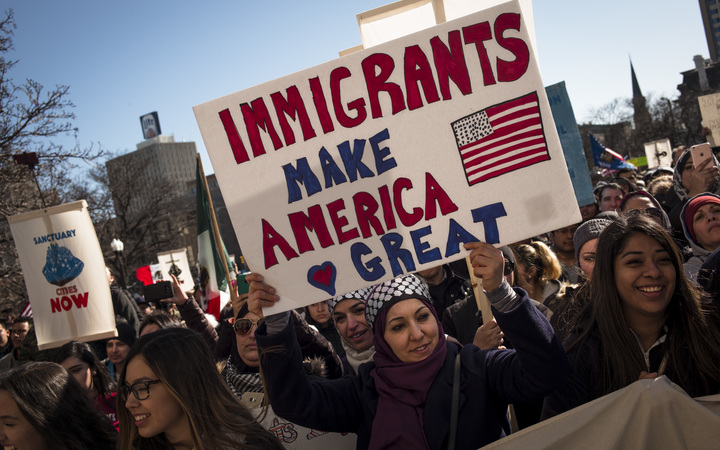KRG US Representation concerned over forced deportation of Kurdish immigrants

ERBIL, Kurdistan Region (Kurdistan24) – The Kurdistan Regional Government’s (KRG) Representation in Washington raised concerns over the deportation of Kurdish immigrants in the United States.
The KRG Representation in Washington in a statement on Friday said they were approached by Kurdish diaspora in the US following new measures taken by the Homeland Security’s Immigration and Customs Enforcement (ICE).
The statement added that ICE had arrested several Kurdish immigrants in the US to be forcibly expelled and deported to the Iraqi capital of Baghdad.
The KRG Representation said that they had expressed their concerns to the US State Department over the forced deportation of Kurdish immigrants in the country.
"Some of the immigrants will be deported to Baghdad, which will be challenging for them as they do not have relatives there and some others cannot speak Arabic,” they stated
The statement noted that the US administration had informed the KRG Representation that the issue is a legal matter, and arresting and deporting these persons is in line with the enforcement of immigration laws and the court's decision.
“The US side has also said that the decision does not only include Iraqis and Kurds,” the statement read.
The KRG Representation reiterated that since the issue is a legal matter, they advise Kurdish immigrants to seek legal services and get a lawyer.
The Trump administration’s move angered the Kurdish community in the US, which held demonstrations to protest the decision over the weekend.
Recently, the Trump administration has pushed to reopen the cases of hundreds of illegal immigrants who had been given a reprieve from deportation, Reuters reported on Saturday.
In 2011, Barack Obama's administration initiated a policy change to “pull from deporting immigrants who had formed deep ties in the US and whom the government considered no threat to public safety.”
Editing by G.H. Renaud
